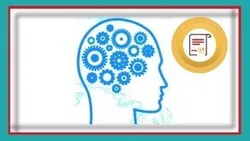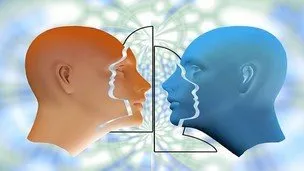
The Psychology of Emotions: An Introduction to Embodied Cognition 
This course introduces the concept of embodied cognition, which suggests that our mind is rooted in our body. Learn about the fundamental principles of cognitive psychology with a focus on emotional, social, and embodied cognition. Explore the mind-body dualism and reductionism, and discover how to recognize facial expressions and interpret emotions. Learn about the main theories of embodiment, methods, and materials used to explore emotional embodiment. Gain knowledge of cognitive neuroscience and human factors to improve decision making processes. ▼
ADVERTISEMENT
Course Feature
![]() Cost:
Cost:
Free
![]() Provider:
Provider:
Edx
![]() Certificate:
Certificate:
Paid Certification
![]() Language:
Language:
English
![]() Start Date:
Start Date:
Self paced
Course Overview
❗The content presented here is sourced directly from Edx platform. For comprehensive course details, including enrollment information, simply click on the 'Go to class' link on our website.
Updated in [May 25th, 2023]
This course introduces the concept of embodied cognition, which theorizes that many functions of human cognition are aided by our entire bodies’ feelings and sensations. It explores the idea that our mind is rooted in our body and that perhaps it is time to move on from the mind-body dualism and reductionism. It covers the fundamental principles of cognitive psychology with a specific focus on emotional social and embodied cognition, and introduces new concepts to include in a view of mental health.
Possible Development Directions:
This course encourages learners to reflect on crucial and thought-provoking concepts such as the mind-body dualism and reductionism. It will make learners self-aware of how they express their emotions as well as how they read and interpret other persons’ emotions. It will also provide learners with knowledge of cognitive neuroscience and human factors, and teach them about the main methods and materials used to explore emotional embodiment and to measure our ability to recognise other people’s facial expressions.
Related Learning Suggestions:
Learners of this course will benefit from further exploring the main theories of embodiment and hypotheses, and how researchers investigate and address them. They should also look into the main experimental designs, behavioural and neuroimaging methods adopted. Additionally, they should consider the complexity and simplicity of the cognitive process that takes place whenever we try to recognize facial expressions, and how easily we can misinterpret others’ emotions.
[Applications]
The application of this course can be seen in various fields, such as mental health, education, and social work. Learners can use the knowledge gained from this course to better understand the complexities of emotional processing and how it affects decision making. They can also use the course to gain insight into how to better recognize and interpret facial expressions, as well as how to better express their own emotions. Additionally, learners can use the course to gain a better understanding of the mind-body dualism and reductionism, and how these concepts can be applied to their own lives.
[Career Paths]
1. Clinical Psychologist: Clinical psychologists assess, diagnose, and treat mental, emotional, and behavioral disorders. They use a variety of techniques, such as psychotherapy, cognitive-behavioral therapy, and psychopharmacology, to help their patients. Clinical psychologists are in high demand, and the field is expected to grow by 14% over the next decade.
2. Cognitive Neuroscientist: Cognitive neuroscientists study the brain and its functions, such as memory, language, and decision-making. They use a variety of techniques, such as brain imaging, to understand how the brain works and how it affects behavior. This field is growing rapidly, and the demand for cognitive neuroscientists is expected to increase significantly over the next decade.
3. Mental Health Counselor: Mental health counselors provide counseling and therapy to individuals, couples, and families. They help their clients manage mental health issues, such as depression, anxiety, and trauma. Mental health counselors are in high demand, and the field is expected to grow by 22% over the next decade.
4. Social Worker: Social workers provide support and assistance to individuals, families, and communities. They help their clients manage a variety of issues, such as poverty, substance abuse, and mental health. Social work is a growing field, and the demand for social workers is expected to increase by 11% over the next decade.
[Education Paths]
1. Bachelor's Degree in Psychology: A Bachelor's Degree in Psychology is a great way to gain an understanding of the psychology of emotions and embodied cognition. This degree will provide students with a comprehensive overview of the field, including the history, theories, and research methods used to study emotions and cognition. Students will also learn about the various psychological disorders and treatments related to emotions and cognition. Additionally, students will gain an understanding of the ethical considerations related to the study of emotions and cognition. As the field of psychology continues to evolve, a Bachelor's Degree in Psychology will provide students with the necessary skills to stay up-to-date with the latest developments in the field.
2. Master's Degree in Cognitive Neuroscience: A Master's Degree in Cognitive Neuroscience is an excellent way to gain a deeper understanding of the psychology of emotions and embodied cognition. This degree will provide students with an in-depth look at the brain and its role in emotion and cognition. Students will learn about the various brain structures and functions related to emotions and cognition, as well as the various techniques used to study the brain. Additionally, students will gain an understanding of the ethical considerations related to the study of the brain. As the field of cognitive neuroscience continues to evolve, a Master's Degree in Cognitive Neuroscience will provide students with the necessary skills to stay up-to-date with the latest developments in the field.
3. Doctoral Degree in Social Psychology: A Doctoral Degree in Social Psychology is a great way to gain an understanding of the psychology of emotions and embodied cognition from a social perspective. This degree will provide students with an in-depth look at the various social factors that influence emotions and cognition. Students will learn about the various theories and research methods used to study emotions and cognition in social contexts. Additionally, students will gain an understanding of the ethical considerations related to the study of emotions and cognition in social contexts. As the field of social psychology continues to evolve, a Doctoral Degree in Social Psychology will provide students with the necessary skills to stay up-to-date with the latest developments in the field.
4. Master's Degree in Human Factors: A Master's Degree in Human Factors is an excellent way to gain an understanding of the psychology of emotions and embodied cognition from a human factors perspective. This degree will provide students with an in-depth look at the various human factors that influence emotions and cognition. Students will learn about the various theories and research methods used to study emotions and cognition in human factors contexts. Additionally, students will gain an understanding of the ethical considerations related to the study of emotions and cognition in human factors contexts. As the field of human factors continues to evolve, a Master's Degree in Human Factors will provide students with the necessary skills to stay up-to-date with the latest developments in the field.
Course Provider

Provider Edx's Stats at AZClass
Discussion and Reviews
0.0 (Based on 0 reviews)
Explore Similar Online Courses

JavaScript In Practice: ES6 And Beyond

Complete Blender Creator: Learn 3D Modelling for Beginners

Python for Informatics: Exploring Information

Social Network Analysis

Introduction to Systematic Review and Meta-Analysis

The Analytics Edge

DCO042 - Python For Informatics

Causal Diagrams: Draw Your Assumptions Before Your Conclusions

Whole genome sequencing of bacterial genomes - tools and applications

Cognitive Psychology: Employee and Customer Behaviour

Cognitive Behavioral Therapy CBT Life Coaching Certification

Introduction to CBT: Cognitive Behavioral Therapy
 Related Categories
Related Categories
 Popular Providers
Popular Providers
Quiz
 Submitted Sucessfully
Submitted Sucessfully
1. What is the main focus of this course?
2. What kind of methods are used to explore emotional embodiment?
3. What is the main goal of this course?


Start your review of The Psychology of Emotions: An Introduction to Embodied Cognition